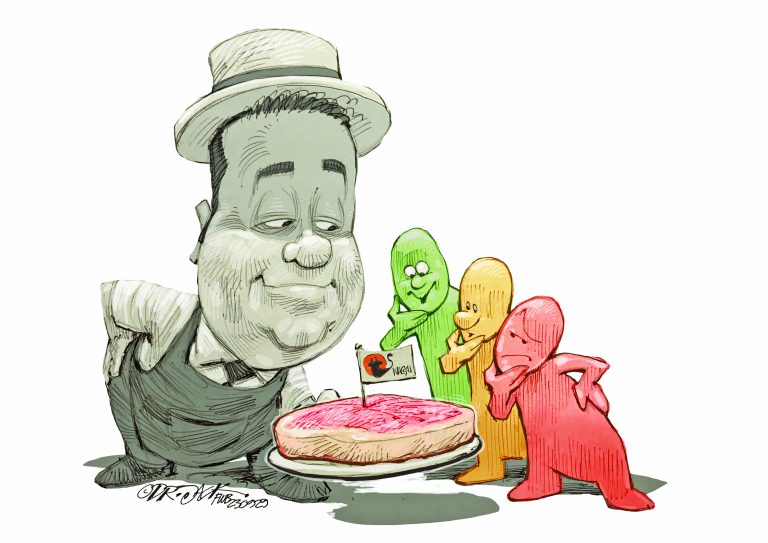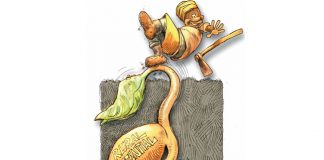
When we do business, we do it with people. Understanding people and knowing how to influence them is a valuable skill, especially if you want to sell something.
We are not talking about ‘twisting someone’s arm’ but rather generating sales by appealing to the needs and demands of customers.
For instance, the hospitality and food business is looking for repeat sales. These companies will want your offering if you supply them with a product or experience that makes people come back for more.
On the other hand, many restaurants are scared of Wagyu because they want consistent product. I suggest to them that they treat Wagyu like any other scarce product, like crayfish, and write it on the black board when available.
The emphasis on Wagyu’s scarcity could spark new interest in the meat and grow demand. I know of one restaurant that has bookings for certain Wagyu cuts months in advance, simply because the meat is treated like a rarity.
The biggest trick, however, is to break the habit of what people are used to, so they will switch to your product. To do this, try to identify people who would come to a shop, restaurant or business and actually thank you for introducing them to Wagyu. In other words, people who may want Wagyu to be part of their lives, but probably do not know it yet.
Types of customer
Broadly speaking, I identified three types of customer who might fall into this category: the aspirational buyer, the emotional buyer and the polarity responder.
The aspirational buyer strives to get more out of life. Basically, they want to expand their own life and their family’s life. Normally, they are hard-working, enjoy pushing themselves to learn new skills, tend to be career driven, and enjoy taking risks.
They are not necessarily wealthy yet, but aspire to be so. They often wear branded clothing, crave exclusivity and exclusive experiences, and see these as a reward for their hard work.
They are motivated by the ‘carrot’ of success. If there is no carrot, they will end up sitting at home doing nothing. Aspirational customers therefore need products they can aspire to. Wagyu is spot-on for this group, because of the unique eating experience it promises.
Most aspirational customers live in developing countries. With 62% of the population being aspirational buyers, South Africa has the second-highest population of aspirational buyers in the world. Columbia takes the first position with 69% of its population falling into this category, while the Philippines takes third position, with 59% of its population falling into this category.
Developed countries, such as the UK, generally do not have such a big population of aspirational buyers. In developing countries, however, people need to work hard if they want a better life for themselves and their families.
The emotional buyer: The Myers-Briggs personality test categorises people into 16 personality types based on how they perceive the world and make decisions. Broadly speaking, four categories are used to determine personality type. The first is whether you are an extrovert or introvert.
Extroverts are outward-turning and tend to be action orientated. They enjoy frequent interaction and feel energised after spending time with others. Introverts, on the other hand, are inward turning. They tend to be thought orientated, enjoy deep and meaningful interactions, and need time alone to recharge.
The second personality type relates to whether a person uses sensing or intuition to create meaning from the world. Sensors pay a lot of attention to what they feel, see and hear, and tend to focus on facts and details.
Those who are intuitive, however, pay more attention to patterns and impressions, and enjoy thinking about the future, abstract theories and different possibilities.
The third category relates to whether people use thinking or feeling to make decisions. Thinkers tend to make logical decisions, whereas feelers want to feel good about the decisions they make.
The last category, which entails either judging or perceiving, relates to how people deal with the outside world. Judgers prefer structure and firm decisions, whereas those who lean toward perceiving are more open, flexible and adaptable.
According to the stats, 60% of the world’s population and more than 75% of all women are feelers.
So, ask yourself: “What problems am I trying to solve with my product? Are these problems logical or emotional?” The problems will also be context driven.
For instance, emotions might go up even for a thinker when the product appeals to kids’ well-being and health.
A logical and emotional choice
Wagyu is similar to organic food. It sells at a premium and demand is driven by its effects on family health, which is an emotional drive, and the impact of the product on the environment, including animal welfare. The latter is a more logical value, but can also be seen as emotional.
In fact, an article in the British Food Journal, ‘Emotional or logical: reason for consumers to buy organic food products’, found that most organic fruit and vegetable sales are driven by fears around conventional food products. The logical factor, such as an environmental motive, was found to be insignificant.
So, when selling Certified Wagyu Beef as an exceptional eating experience to aspirational buyers, make sure you do not miss out on sales from emotional buyers.
Do this by adding information to your product that helps alleviate their fears around commodity beef, and especially processed meat.
Certified Wagyu Beef ticks so many boxes, as it is free from growth hormones and rich in Omega 3 and 6.
The polarity responder: The third type of consumer, the polarity responder, tends to disagree with everything you say.
Generally, they are analytical and intelligent, and their response usually produces an exception to the rule. They hate doing things that are mainstream, and are a nightmare for most marketers.
The trick with them is to say the product is not for them. You have won if they then argue back that it is!











